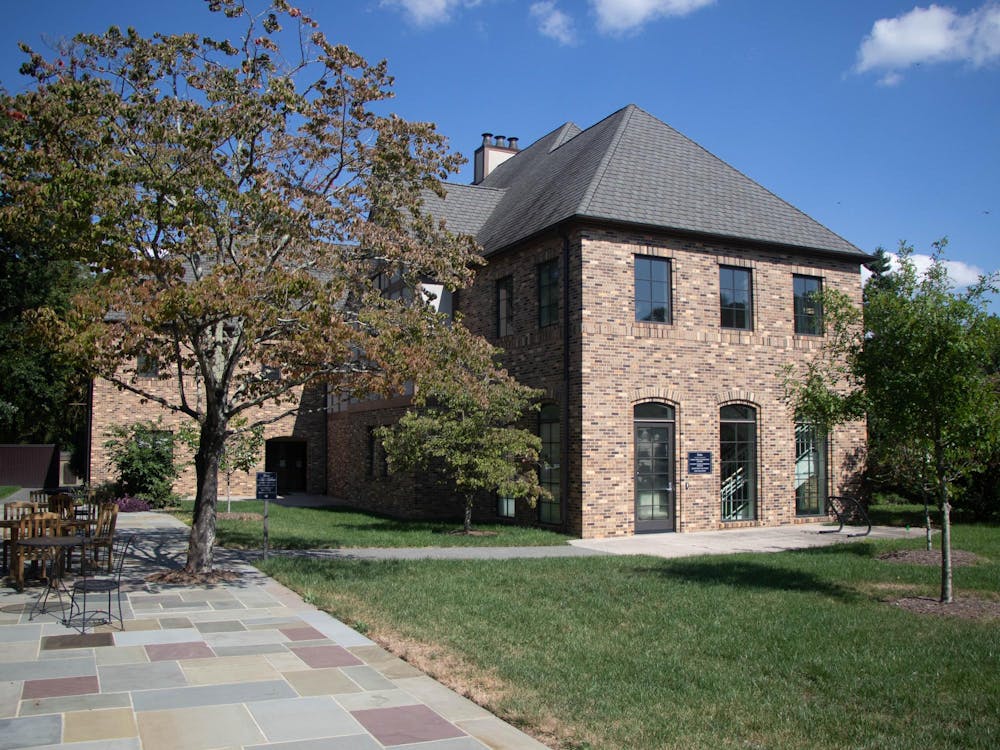Certain Duke students and alumni are eligible to receive compensation following court approval of the University’s $24 million settlement agreement in an antitrust financial aid lawsuit.
In the July 20 ruling, the U.S. District Court for the Northern District of Illinois approved settlement agreements for 10 defendant universities: Duke University, Brown University, the University of Chicago, Columbia University, Dartmouth University, Emory University, Northwestern University, Rice University, Vanderbilt University and Yale University.
Duke was one of 16 elite institutions sued in January 2022 by eight former students for engaging in price fixing and illegally practicing need-aware admissions.
In addition to the eight alumni plaintiffs, the “Settlement Class” — those eligible to file a claim and receive benefits from the settlement — includes thousands of current and former students from the settling universities.
All U.S. citizens or permanent residents who were enrolled in an undergraduate program at one of the defendant universities during the “Class Period,” who received any amount of need-based financial aid from that university and whose tuition, fees, room or board were not fully covered by financial aid or merit aid — excluding loans — in any undergraduate year is eligible for compensation. The class period for Duke is defined as any time between the 2003 fall term and Feb. 28, 2024.
There are some exceptions to the eligibility terms: officers and trustees of the defendant universities, some current and former university administrators, and the judge presiding over the case — U.S. District Judge Matthew Kennelly — and his immediate relations and office staff.
Duke filed its settlement agreement Jan. 22, 2024 following “bona fide and extensive arm’s-length negotiations conducted in good faith” between legal counsel representing the settlement class and the defendants. Sia Henry, Trinity ‘11 and one of the original plaintiffs, is listed as a class representative “individually and on behalf of all others similarly situated.”
“Duke denied all the allegations of wrongdoing and claims of liability in this case,” wrote Frank Tramble, vice president for communications, marketing and public affairs, in an Aug. 21 email to The Chronicle. “We settled this case to avoid the wasteful cost and inconvenience of prolonged litigation.”
Duke is responsible for $24 million of the combined $284 million total among the 10 settling defendants, tied with Columbia for the fifth-largest sum.
The initial January 2022 complaint argued that by eliminating price competition, the defendant universities artificially inflated the price of attendance for financial aid recipients and overcharged 170,000 financial aid recipients by “at least hundreds of millions of dollars” over almost 20 years.
The 17 defendant universities — now including Johns Hopkins University, which was added in February 2022 — were all members of the 568 Presidents Group. Also known as the 568 Cartel, this collection of highly-ranked colleges and universities shared formulas for measuring the financial need of prospective applicants under antitrust exemptions provided by Section 568 of the 1994 Improving America’s Schools Act. The group disbanded in November 2022 following the lawsuit.
All 17 defendants previously filed a motion in April 2022 to have the lawsuit dismissed. The motion was denied in August of that year, and 10 of the defendants later moved to settle.
The settlement was preliminarily approved Feb. 14 following a Jan. 23 motion from the plaintiffs in support of settlement agreements from Duke, Brown, Columbia, Emory and Yale.
Huntington National Bank was appointed by the court as the escrow agent to hold the settlement funds, while Angeion Group LLC was appointed as the “Settlement Administrator” and tasked with distributing the settlement funds in accordance with the Revised Plan of Allocation and Allocation Plan Process.
Per the July 20 ruling, Angeion will distribute funds “based on estimates of the total amount in dollars that each Claimant paid to a Defendant during the Settlement Class Period” as provided through a formula detailed in the Revised Plan of Allocation. Each claimant will receive a payment “in proportion to the average Net Price charged by the Defendant for each year or term a Claimant attended that institution.”
According to the May 2024 Allocation Plan Process, Angeion must provide each member of the settlement class “for whom Angeion has a valid and current address" with a notice with a link to a pre-populated claim form via email or first-class mail by Sept. 18 — within 60 days of the agreement’s final approval.
Claimants have 150 days after the final ruling to submit their form, after which Angeion will submit a final report to the court detailing the distribution schedule. Claimants will then receive compensation from the Net Settlement Fund.
Members of the settlement class who do not receive a claim form from Angeion can submit a form on the settlement website or contact Angeion at 833-585-3338 or info@financialaidantitrustsettlement.com.
Members of the settlement class were previously notified of the pending litigation “via First Class Mail, email and through a media campaign,” in what the court deemed “the best notice practicable under the circumstances” in light of the class’s extensive size.
The other seven universities who have declined to settle include the California Institute of Technology, Cornell University, Georgetown University, Johns Hopkins University, the Massachusetts Institute of Technology, the University of Notre Dame du Lac and the University of Pennsylvania.
Get The Chronicle straight to your inbox
Sign up for our weekly newsletter. Cancel at any time.

Zoe Kolenovsky is a Trinity junior and news editor of The Chronicle's 120th volume.

